1 KINGS 17: COPING WITH DROUGHT
I have a friend who says that what I’m writing every day is of no interest at all to her. I can’t talk to her at all because I know that bringing  up the subject (regardless of how diverse the Creator Guidebook is in its multifaceted application to everyday life) is of no interest to her. At first reading, you may likewise think that today’s chapter has nothing to do with you and your life experience. But… “The entire Kitvei HaKodesh (every chapter in the Creator God’s epic storyline, start to finish) is Hashem-breathed (God-breathed) and useful for hora’ah (teaching), for reproof, for correction, for training in Tzedek (righteousness). That the ish haElohim (the Child of God) may be proficient, having been equipped for every one of the ma’asim mitzvot (every good work)…”[a] That true, a few things should be noted from today’s chapter…
up the subject (regardless of how diverse the Creator Guidebook is in its multifaceted application to everyday life) is of no interest to her. At first reading, you may likewise think that today’s chapter has nothing to do with you and your life experience. But… “The entire Kitvei HaKodesh (every chapter in the Creator God’s epic storyline, start to finish) is Hashem-breathed (God-breathed) and useful for hora’ah (teaching), for reproof, for correction, for training in Tzedek (righteousness). That the ish haElohim (the Child of God) may be proficient, having been equipped for every one of the ma’asim mitzvot (every good work)…”[a] That true, a few things should be noted from today’s chapter…
-
The Creator God knows us by name. Our Father knows our names and where we’re from even 2800 years later; and if this isn’t amazing enough, He has recorded our private conversations long before digital recordings were ever invented.
-
The Creator knows what’s around the corner. With Heaven as His throne and earth as His footstool[b], and since He neither
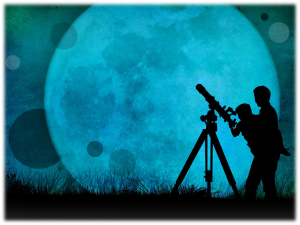 sleeps nor slumbers but is our ‘keeper’[c], the Creator God has a 24/7 birds-eye view and can see what’s around the corner. In this case, He knew the backlash that Elijah would experience as a direct result of openly saying something then was against the hopes and dreams of the country’s leadership. What’s more, He plans ahead with provision and protection, if we’re willing to believe and follow His lead. [v2-4]
sleeps nor slumbers but is our ‘keeper’[c], the Creator God has a 24/7 birds-eye view and can see what’s around the corner. In this case, He knew the backlash that Elijah would experience as a direct result of openly saying something then was against the hopes and dreams of the country’s leadership. What’s more, He plans ahead with provision and protection, if we’re willing to believe and follow His lead. [v2-4] -
The Creator God reveals the story in scenes and segments. Elijah followed God’s lead and that seemed to work for a time, but the brook dried up! [v5-7] The prayer the Jesus taught His Followers 800 years later: “…give us today our daily bread…”, is as true of the Creator God’s dealings with His Children as it was back 1000 years before Elijah, when God’s people first become a nation and collected “manna” to eat in the wilderness which was received one day at a time.[d] If we want the whole plan from the beginning, we’ll not get it – beyond the global plan that is laid out start to finish in the Maker’s Guidebook for Life. At an individual level He works as a shepherd, leading us from one tuft of grass to the next. He works in segments: revealing the next scene as the stage curtains open up on that scene, and not before.
-
Our Father God is Jehovah Jireh – our Provider. This means that, like any great playwright, the whole play is not revealed at the start but slowly unfolding. Or, like a good shepherd,
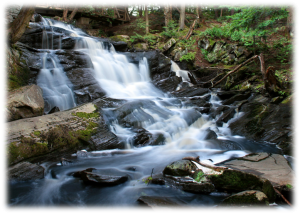 He’ll not give an entire winter’s supply of hay for the sheep; but instead, a twice-a-day gradual supply. In addition, you can be sure that there’s a untold story going on all the while with Elijah and his many unanswered prayers as he watched the brook gradually shrinking: “Can you please send along traveling merchants with water?”; “Should a start digging for more water?”; “I know You said no rain in Israel, but I’m on the other side of the Jordan River. So, can you please send a isolated shower on me!” And all the while Elijah is growing in His relationship with His Father God – as hard as that is to experience!
He’ll not give an entire winter’s supply of hay for the sheep; but instead, a twice-a-day gradual supply. In addition, you can be sure that there’s a untold story going on all the while with Elijah and his many unanswered prayers as he watched the brook gradually shrinking: “Can you please send along traveling merchants with water?”; “Should a start digging for more water?”; “I know You said no rain in Israel, but I’m on the other side of the Jordan River. So, can you please send a isolated shower on me!” And all the while Elijah is growing in His relationship with His Father God – as hard as that is to experience! -
God reveals next steps, but are we tuned in to listen and understand. People say, “God speaks” but how? Beyond an audible voice that appears to be extremely rare, how did Elijah know what to do when? [v8-9] We’re lucky today with three ways that our Father God speaks: we have His written Word, His Holy Spirit, and His people – mature Believers to run our thoughts by and test if we’re hearing right.[e] Elijah only had the Holy Spirit (along with a parchment or two if he travelled with these); so it’s likely that Father God used a message in his dream. “Arise go to….” indicates perhaps laying/sitting down, perhaps in and out of consciousness with thirst. When we “walk with God”, chatting to Him throughout the day, it’s amazing how we can “hear back” – assuming that we’re willing to acknowledge Him and thank Him, and not say that it was ‘us and our thinking’ that came up with the plan.
-
Obedience is the key. There’s a saying, A rolling stone gathers no moss. Or, It’s easy to steer a ship at sea than one in port. Logic would say that the worst
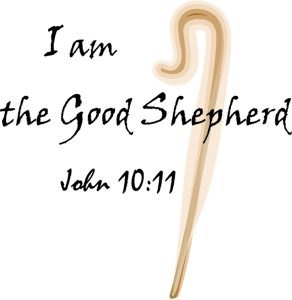 that could have happened for Elijah on the move, was that he was wrong and there was no widow in Zarephath at all, yet at least there’s more chance of food and water. [v9] Besides, it’s not Israel, it’s Sidon and rain could be there. Whatever the results of moving, Elijah could say that the instruction was too specific and too random for it to NOT be God. If anyone has told you that religion is a crutch for old ladies and children, tell them to read this story. It takes strength of character to follow the Creator God while hoping that you’re hearing right as you stumble in absolute Faith from one scenario to the next in this event-filled world!
that could have happened for Elijah on the move, was that he was wrong and there was no widow in Zarephath at all, yet at least there’s more chance of food and water. [v9] Besides, it’s not Israel, it’s Sidon and rain could be there. Whatever the results of moving, Elijah could say that the instruction was too specific and too random for it to NOT be God. If anyone has told you that religion is a crutch for old ladies and children, tell them to read this story. It takes strength of character to follow the Creator God while hoping that you’re hearing right as you stumble in absolute Faith from one scenario to the next in this event-filled world! -
The Creator God CAN be trusted. [v10] Even when we get it wrong, our Father is a compassionate God who made us in His own image to live and operate like Him.[f] He’s not going to ‘hang us out to dry’ then sit back and watch us struggle. He doesn’t play Hide and Seek. He plays Seek and Find. “…’For I know the machshavot (thoughts, plans) that I think toward you,’ saith Hashem (says the LORD), ‘machshavot shalom (thoughts/plans of peace), and not of ra’ah, (harm/calamity) to give you an acharit (future) and a tikvah (hope)’….”[g]
-
Life isn’t Rosey. [v10-16] A misunderstanding circulating around anyone who thinks that God is Good, is that life is ‘rosey’ and bad things won’t happen to good people. Instead, Father God wants mature (adults of faith) that can rule over our environment and circumstances as we were blueprinted to do in every eventuality. The widow’s plight. Elijah’s plight. The boy’s plight.
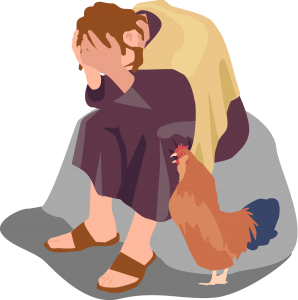 The Creator God is weaving a global masterplan and He needs Children who’ll not be self-absorbed but who’ll understand the juggling balls. We know without doubt that “All things will work together for good” (everything co-operates towards HaTov – gratitude), but this comes as a synergistic effect that results from loving God and being called (HaKeru’im summoned, called ones) according to the etzah (wisdom) of the tochnit (God’s purposes, His purposeful and willed plan or goal)…”[h] – and not our own agenda.
The Creator God is weaving a global masterplan and He needs Children who’ll not be self-absorbed but who’ll understand the juggling balls. We know without doubt that “All things will work together for good” (everything co-operates towards HaTov – gratitude), but this comes as a synergistic effect that results from loving God and being called (HaKeru’im summoned, called ones) according to the etzah (wisdom) of the tochnit (God’s purposes, His purposeful and willed plan or goal)…”[h] – and not our own agenda. -
Things often get worse before they get better. [v17-23] Smooth sailing isn’t realistic, yet many people assume that having Faith is God is an immunization against life storms. This is most noticeable when things can only get worse before they get better. If you want your Father God to be ‘a sugar daddy’, you need to be real about the fire that’s needed for harvesting a sugar cane field, before you have your sugar-coated life. If you want Him to “give you today your daily bread”[i], you need to get real and understand how that enjoyable bread comes to you. From a field mouse perspective, the utter devastation caused to the peaceful habitat of a wheat field swaying in the sunshine when the combine harvester comes through, had left his world unrecognizable!! For that warm tasty loaf of bread, such an ecosystem will never recover and will have to be completely reploughed and replanted starting all over again next year.
-
Human need ridiculous amount of proof before they believe. [v24] The widow had daily proof in a supernatural miracle of flour and oil, enough to feed her family and
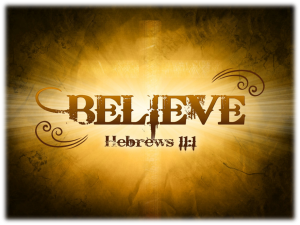 Elijah throughout a famine. Yet it wasn’t until she was taken to heart-stopping, gut-wrenching grief, with the loss and subsequent restoration of her son, that she finally ‘believed’ and openly confessed her Faith. I don’t get it! I don’t understand it! I don’t know why humans are like this. But as this epic storyline unfolds, you’ll be tearing your hair out at the utter blindness of humanity’s shut up heart[j] – especially considering that we’re the most intelligent of all created beings.
Elijah throughout a famine. Yet it wasn’t until she was taken to heart-stopping, gut-wrenching grief, with the loss and subsequent restoration of her son, that she finally ‘believed’ and openly confessed her Faith. I don’t get it! I don’t understand it! I don’t know why humans are like this. But as this epic storyline unfolds, you’ll be tearing your hair out at the utter blindness of humanity’s shut up heart[j] – especially considering that we’re the most intelligent of all created beings.
If today’s Breadcrumb is about “coping with drought”, I would suggest we look first at our heart for it is the wellspring of life.[k] We can live with plenty and yet be barren inside.[l] Conversely, we can sit in utter devastation dying of thirst in a valley of the shadow of death, yet ready to meet our Maker full in heart and mind.[m] The choice is ours but we only have ‘now’ for making it.
Click to return to today’s “Daily Breadcrumbs”
[a] 2 Timothy 3:16-17
[b] Matthew 5:34-35
[c] Psalm 121:4-5
[d] Exodus 16:9-35
[e] James 1:5
[f] Genesis 1:26-28
[g] Jeremiah 29:11
[h] Romans 8:28
[i] Matthew 6:11 (Context: 6:9-13)
[j] Isaiah 6:9-10
[k] Proverbs 4:23 (Orthodox Jewish Bible – OJB)
[l] Revelation 3:17 (Context: 3:15-22)
[m] Psalm 23:5